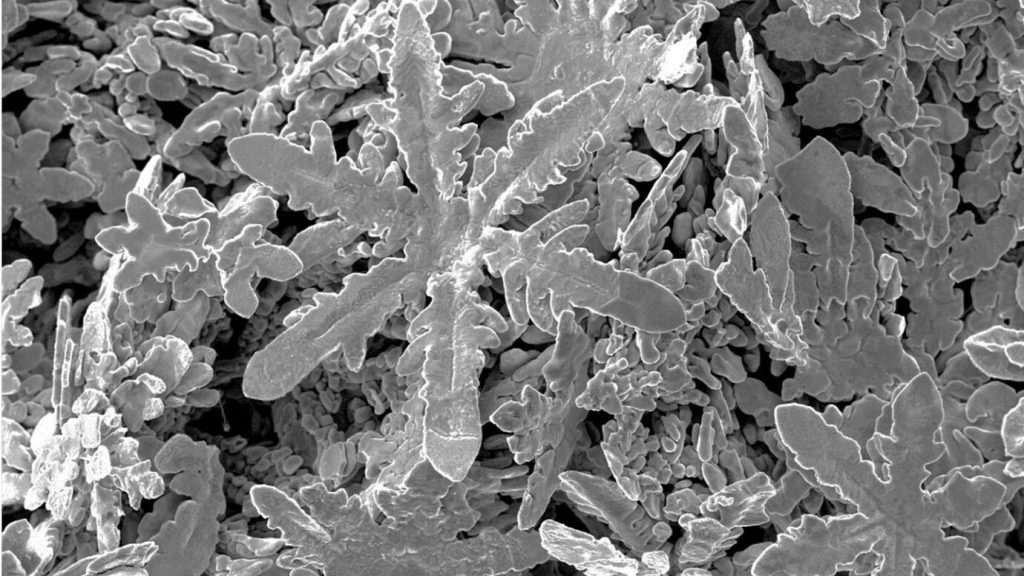How to make tiny metal snowflakes

Look closely at a snowflake, and you’ll observe a one-of-a-kind gossamer lattice, its growth influenced by ambient conditions like temperature and humidity. Turns out, this sort of intricate self-assemblage can also occur in metals, researchers report in the Dec. 9 Science.
In pools of molten gallium, physicist Nicola Gaston and colleagues grew zinc nanostructures with symmetrical, hexagonal crystal frameworks. Such metal snowflakes could be useful for catalyzing chemical reactions and constructing electronics, says Gaston, of the MacDiarmid Institute for Advanced Materials and Nanotechnology at the University of Auckland in New Zealand.
“Self-assembly is the way nature makes nanostructures,” she says. “We’re trying to learn to do the same things.” Figuring out how to craft tiny, complex metal shapes in fewer steps and with less energy could be a boon for manufacturers.
The researchers chose gallium as a growth medium, due to its relatively low melting point, ability to dissolve many other metals and the tendency for its atoms to loosely organize while in a liquid state.
After mixing zinc into the gallium, the team subjected the alloy to elevated temperatures and different pressures, and then let the mixture cool to room temperature. The loose ordering of gallium atoms appeared to coax the crystallizing zinc to bloom into symmetrical, hexagonal structures resembling natural snowflakes and other shapes, the team found. It’s somewhat like how a fruit tray imparts order on the fruits stacked within, Gaston says.
The future may be bright for research into applications of gallium and other low-temperature liquid metals. “Not to take that snowflake metaphor too far, but [this work] really hints at new branches for scientific discovery,” Gaston says.